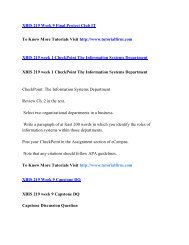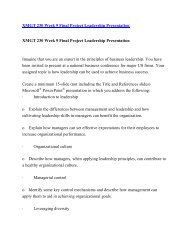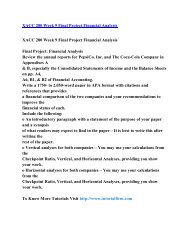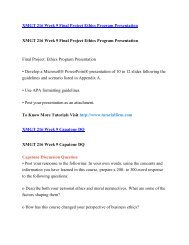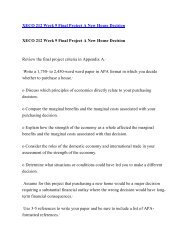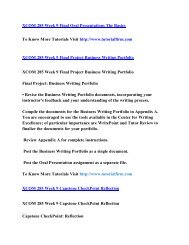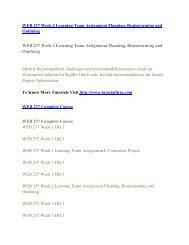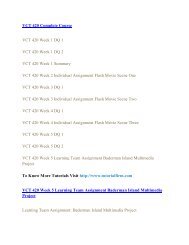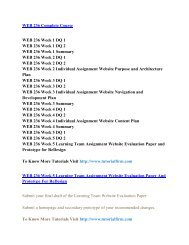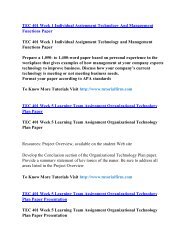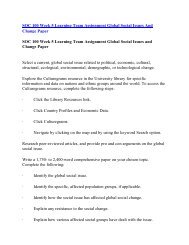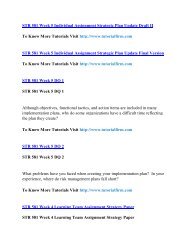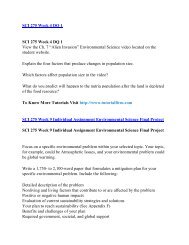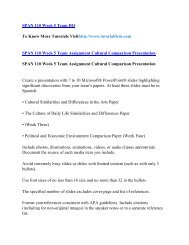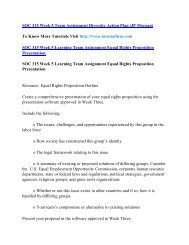LAW 531 UOP Tutorials,LAW 531 UOP Assignments,LAW 531 UOP Entire Class
Create successful ePaper yourself
Turn your PDF publications into a flip-book with our unique Google optimized e-Paper software.
a court in the plaintiff’s country<br />
a court in the defendant’s country<br />
the International Court of Justice<br />
a court in a neutral country<br />
9.) Which of the following is an international organization of 153 member<br />
nations created in 1995 to promote and enforce trade agreements among member<br />
countries and customs territories<br />
General Agreement on Tariffs and Trade<br />
North American Free Trade Commission<br />
World Trade Organization<br />
International Monetary Fund<br />
10.) What are the primary sources in the U.S. Constitution of the federal<br />
government’s power over international affairs?<br />
The Foreign Commerce Clause and the Treaty Clause<br />
The Commerce Clause and the Privileges and Immunities Clause<br />
The Treaty Clause and the War Powers Clause<br />
The Treaty Clause and the Police Power<br />
11.) In the United States, how may states regulate interactions with foreign<br />
nations?<br />
The states can pass laws so long as they do not unduly burden foreign commerce,<br />
but the states have no authority to enter into treaties with foreign nations.<br />
The states can pass laws and enter into treaties with foreign nations so long as they<br />
do not unduly burden foreign commerce.<br />
The states can pass laws affecting foreign commerce and enter into treaties with<br />
foreign nations so long as they first obtain the consent of the Senate.<br />
The states have no power over foreign affairs because the U.S. Constitution grants<br />
that power exclusively to the federal government.



